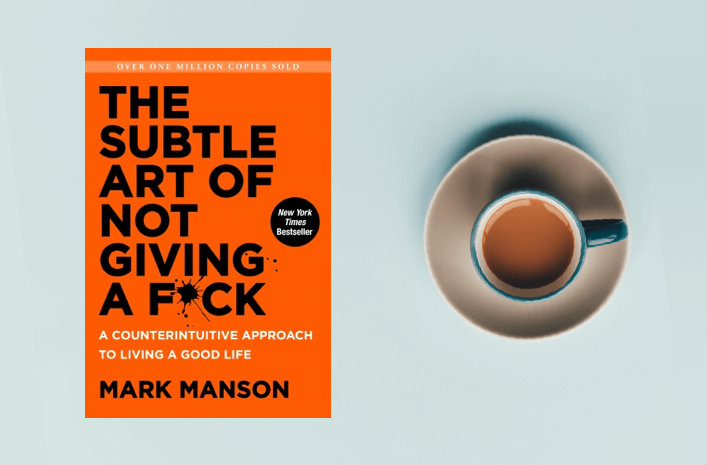Mark Manson, the author of this book, is a star blogger specializing in personal development. In his book, he is trying to show how we need to stop attempting to always be positive so we can have a better and happier life. Here are some key points that I got from the book.

The Hedonic Treadmill
The Hedonic treadmill is the tendency of a person’s level of happiness to remain at an average level despite the accomplishment of goals or positive chances in life. As Mark puts it “If I achieve X, then I can be happy. If I look like Y, then I can be happy. If I can be with a person like Z, then I can be happy.” For example, I used to think that I would be happier if I had a new motorbike. I did feel happy when I bought a new motorbike, but as time passed by, my happiness decreased and eventually returned to the level when I had an old motorbike.
As a human being, I easily fall into this never-ending loop. I am looking for an ultimate and permanent state of happiness that does not exist. To exit this loop, we have to realize that there is no pain-free life and the path to happiness is solving problems. We should ask ourselves “what pain do we want to sustain?” not “what goals do we want to achieve?” It is because “our struggles determine our successes. Our problems birth our happiness, along with slightly better, slightly upgraded problems.”
Choosing Values
Choosing values is about prioritizing our life. What do we want to give a fuck about? When we choose good values, we will get better problems that will translate into a better life. Some good values that Mark gives include honesty, innovation, standing up for oneself, standing up for others, self-respect, curiosity, being charitable, humility, and creativity. Contrarily, some bad ones are dominance through manipulation or violence, indiscriminate fucking, feeling good all the time, always being the center of attention, not being alone, being liked by everybody, being rich for the sake of being rich, sacrificing small animals to the pagan gods.
Five Values to Adapt
- Responsibility
We should stop blaming others for the problems we encounter. Taking responsibility doesn’t mean taking a fault. The fault is the past, and responsibility is in the present. For example, if somebody leaves a baby on our doorstep, it’s not our fault, but it’s our responsibility to do something about it.
- Uncertainty
Certainty is the hindrance to growth. We need to acknowledge our uncertainty, mistakes, and our ignorance as they are very important for growth to take place.
- Failure
Any success is based on a load of tiny failures. As a kid, we did not avoid failure, for example when we learned to walk and fell many times. As we grow older, we tend to avoid failure. We need to start embracing failure as it is part of the life process.
- Saying no
More is not always better. “The more options we have the less satisfied we become with whatever we choose because we are aware of all the other options we are potentially forfeiting”. We need to be clear on what we will or will not accept in life.
- Remembering your death
Thinking about death makes us rethink what we want to focus on in life and what values we want to leave behind. Important questions we need to ask ourselves are “What is your legacy? How will the world be different and better when you’re gone? What mark will you have made? What influence will you have caused?”
Overall Impression
I personally find this book very helpful to reflect on my own life. I definitely can relate to what Mark is talking about in relation to my everyday problems. For example, I have always been an ‘overthinker’, so much so it interrupts my sleep at night. I often recognize myself as a “yes man” for no legitimate reason. Worst of all, I sometimes make decisions under pressure and regret them afterward. After reading this book, I feel the need to reassess my values and carefully choose what I want to care about.
The idea that the act of climbing a mountain creates more joy than reaching the peak, resonates with my personal experience. One real example is when I started my own business, the process gave me joy. However, when I focused on the result, it gave me pressure and anxiety. Knowing that the result, especially if it is for the sake of money, is just superficial happiness makes me relieved.
One weakness of this book for me personally is that there are too many profanities. I know it is obvious from the title, but I personally do not find it necessary to utter swear words to emphasize a point. The fact he continuously uses shocking language creates quite an aggressive tone to the book. I understand this is Mark’s writing style as a blogger, and it is probably a way to connect with young readers, but I would expect less vulgar language to serve a bigger audience.
Overall, I think this an insightful self-help book that can be beneficial for people seeking a better way of living. If you are a bit sensitive with a harsh language, you might need to download a sample and see it yourself first before committing to the whole book.
Disclaimer:
This article was first published in Tempo English Newspaper.
